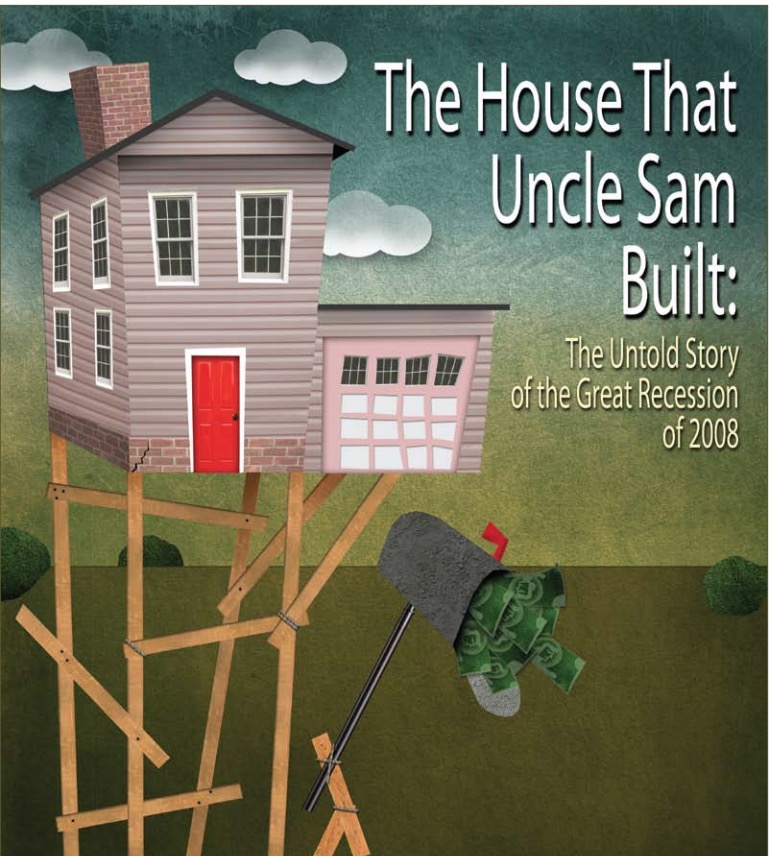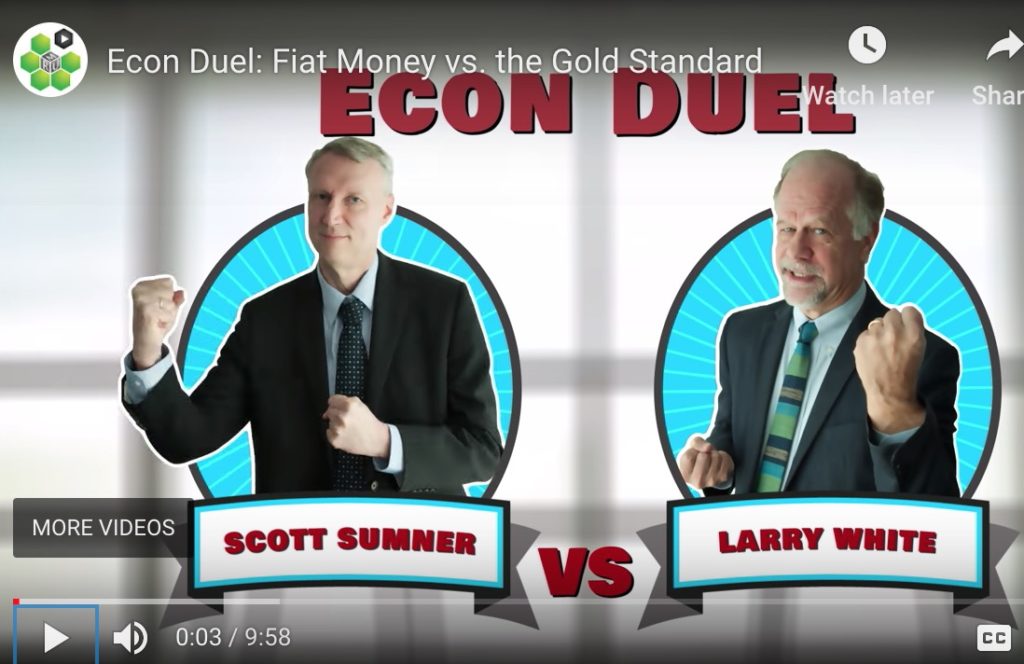Reforming Banking, Finance, and Monetary Policy
Below are a few relevant articles on the Stoa policy resolution choice:
Resolved: The United States Federal Government should substantially reform its banking, finance, and/or monetary policy.
https://springvote2019.homeschooldebate.net/tp-resolutions
The first article is on a particular banking regulation, the Community Reinvestment Act, and argues it contributed to the 2008 housing meltdown, financial crisis, and recession: Trump should boldly repeal a bad banking law: the CRA (The Hill, April 26, 2019):
…the Community Reinvestment Act (CRA), whose regulations distort the credit decisions of every bank in the country, enable advocacy groups to make financial demands on banks seeking to expand and, worst of all, can hurt the low-income communities and households the law purports to help.

A more in depth look at the role of federal banking regulations and the financial meltdown and “Great Recession” is Peter Boettke and Steven Horowitz essay, The House That Uncle Sam Built: The Untold Story of the Great Recession of 2008, (FEE, January 5, 2016, originally published December 2009):
…this particular and very painful episode affirms what the best nonpartisan economists have tried to tell our politicians and policy-makers for decades, namely, that the more they try to inflate and direct the economy, the more damage the rest of us will suffer sooner or later. Hindsight is always 20-20, but in this instance, good old-fashioned common sense would have provided all the foresight needed to avoid the mess we’re in.
The Federal Reserve Bank has a long history of trying to guide the U.S. economy and has a twin mission to keep inflation and unemployment low. Anytime the economy falters, politicians call for loosening the money supply so that businesses can expand and boost hiring.
Long time Fed critic Judy Shelton is in the news now as a potential Federal Reserve Board member: Fed candidate slams bank’s ‘Soviet’ power over markets (Financial Times, May 31, 2019):
In an interview with the Financial Times at the Trump International Hotel in Washington this week, Ms Shelton called on the Fed to “think about whether they are doing more harm than good”. If appointed to the board, she would be “asking tough questions” about its most basic mission, she said.
“How can a dozen, slightly less than a dozen, people meeting eight times a year, decide what the cost of capital should be versus some kind of organically, market supply determined rate? The Fed is not omniscient. They don’t know what the right rate should be. How could anyone?” Ms Shelton said.
Fed candidate slams bank’s ‘Soviet’ power over markets (Financial Times, May 31, 2019)
See also: Trump Team Vets Fed Critic for Board Seat (New York Times, May 21, 2019):
In an interview, Ms. Shelton criticized the Fed’s current practice of paying interest on excess money that banks keep at the Fed as a way to set the Fed’s policy rate. The approach, she said, encourages banks to hold money that they would otherwise lend out, since they are being paid to keep their money idle. To help “phase out” the practice, Ms. Shelton said, she would support gradually cutting interest rates back to rock-bottom. If that spurred inflation, Ms. Shelton said, she would want to sell off the Fed’s holdings of Treasury securities and other government-backed bonds to keep prices from spiraling out of control.
“It’s like paying the banks to do nothing,” Ms. Shelton said of the current practice. Her plan would be “effectively cutting interest rates, but not as a primary goal.”
Trump Team Vets Fed Critic for Board Seat (New York Times, May 21, 2019
Also skeptical of the Federal Reserve’s powers is economist Lawrence White in Fear of a Gold Planet, (Alt-M, June 4, 2019), reviews an article critical of Judy Shelton and her favorable views of the gold standard:
Journalist Sebastian Mallaby, author of a weighty biography of Alan Greenspan, seems to think that favoring the gold standard should disqualify a nominee outright. And this despite his pointing out that Greenspan – generally considered to have been qualified for the job of chairman — was well known to be a gold standard advocate at the time of his appointment in 1987. What has changed? Mallaby suggests that the relative merits of a gold standard have so diminished with the decline of inflation since 1987 that favoring the gold standard is no longer respectable. Mallaby also seems to take for granted that the credit boom (fostered by the Fed’s holding rates too low for too long), followed by bust, financial crisis, and the Great Recession of 2002-09, has done nothing to bolster the case for an alternative to our status quo of a discretionary fiat monetary system.
Also helpful is this “Econ Dual,” Sumner/White: Fiat Money vs. the Gold Standard (MRUniversity):

Throughout the 19th century and up until the Great Depression, the gold standard was used in the United States. It was largely abandoned in the 20th century.
But what is the gold standard? It’s a system for defining the value of a currency in terms of gold. In other words, you could exchange your $20 paper bill for actual gold at one point in history.
Under a fiat money system, such as the one we have in the U.S. today, that $20 paper bill is inconvertible. You can’t exchange it for a backing store of value because there isn’t one.
In this Econ Duel, economists Scott Sumner and Larry White, who both focus on monetary theory and policy, debate the positives and drawbacks to the gold standard vs. fiat money, and the role of central banks.
On the side of the gold standard, White argues that, when properly implemented without a central bank intervening, it provides a more predictable price level and lower average inflation.
Sumner, taking up the banner for fiat money, argues that the gold standard is simply a rule that worked well in the 19th century and that a good fiat money system is, for this day and age, a better alternative.
Sumner/White: Fiat Money vs. the Gold Standard
See also Monetary Policy and Constrained Discretion (American Institute for Economic Research, June 5, 2019):
In monetary policy, the debate between advocates of rules and advocates of discretion rages on. Supporters of rules argue that discretionary monetary policy falls prey to information and incentive problems. Supporters of discretion argue that strict rules-based policy cannot account for real-world complexities, such as financial innovation, that can make a previously sound rule unsound.
An earlier post Banking, Finance, Monetary Policy: Notes on the new Stoa Topic [updated] reviewed the topic and recommended online resources.
